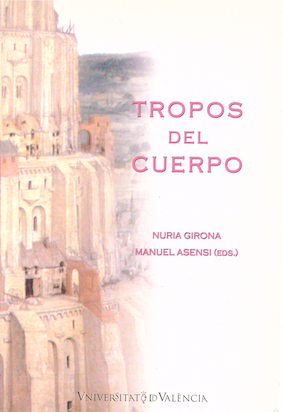La poética del cuerpo en los relatos de Franz Kafka ‘En la colonia penitenciaria’ (1919) y ‘La metamorfosis’ (1915)
DOI:
https://doi.org/10.7203/qf-elit.v9i0.5134Keywords:
Body discourse, modern German literature, modernity crisis, Fin de siècle, 20th century literary fiction Abstract
Abstract
The crisis caused by the spreading modernity in the Centro-European societies towards the end of the 19th century gives way to the appearance of a German literature which has as its theme the manifest asynchrony between socio-political reality and the process of economical modernisation. The dawning of modernity finds its expression in Kafka’s body discourse, developed in his short novels “The metamorphose” and “In the penitentiary” as a criticism to the obsolete socio-political establishment, still persisting at the time of First World War. Kafka tries to formulate a new identity leaving behind the principles of an status quo, which is already incompatible with a modern sensibility. As a result, the arising modernity focuses on the formulation of a poetics about the body, where it figures as hostage or burden, with the subject’s psyche and sensibility exceeding its narrow limits. The body discourse promotes a perception of the reality questioning traditional narrative categories such as the authorial perspective or the principle of mimesis between extra-textual reality and fictive world. In reflection of the social order of the 19th century, this body discourse renders the traditional poetics of realism illegitimate in a pitiless way, opening the door to the development of a genuine and modern 20th century fiction, which tries to reflect the transformation of modern society and the individual.
 Downloads
Downloads
Downloads
Published
How to Cite
-
Abstract990
-
PDF (Español)970
Issue
Section
License
 Este obra está bajo una licencia de Creative Commons Reconocimiento-NoComercial-SinObraDerivada 4.0 Internacional.
Este obra está bajo una licencia de Creative Commons Reconocimiento-NoComercial-SinObraDerivada 4.0 Internacional.
Authors who publish with this journal agree to the following terms:
- Authors retain copyright and grant the journal right of first publication with the work simultaneously licensed under a Creative Commons Attribution License that allows others to share the work with an acknowledgement of the work's authorship and initial publication in this journal.
- Authors are able to enter into separate, additional contractual arrangements for the non-exclusive distribution of the journal's published version of the work (e.g., post it to an institutional repository or publish it in a book), with an acknowledgement of its initial publication in this journal.
- Authors are permitted and encouraged to post their work online (e.g., in institutional repositories or on their website) prior to and during the submission process, as it can lead to productive exchanges, as well as earlier and greater citation of published work (See The Effect of Open Access).



